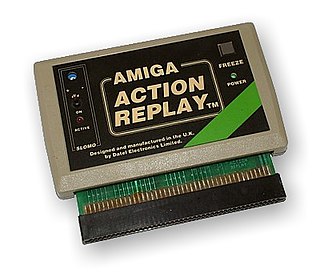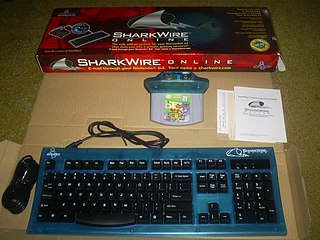 W
WCheating in online games is defined as the action of pretending to comply with the rules of the game, while secretly subverting them to gain an unfair advantage over an opponent. Depending on the game, different activities constitute cheating and it is either a matter of game policy or consensus opinion as to whether a particular activity is considered to be cheating.
 W
WAction Replay is the brand name of a cheating device created by Datel. The Action Replay is available for many gaming systems including the Nintendo DS, Nintendo DSi, Nintendo 3DS, PlayStation Portable, PlayStation 2, GameCube, Game Boy Advance, and the Xbox.
 W
WCheat Engine (CE) is a free and open-source memory scanner/debugger created by Eric Heijnen for the Windows operating system. Cheat Engine is mostly used for cheating in computer games and is sometimes modified and recompiled to evade detection. The program resembles L. Spiro's Memory Hacking Software, TSearch, and ArtMoney. It searches for values input by the user with a wide variety of options that allow the user to find and sort through the computer's memory. Cheat Engine can also create standalone trainers that can operate independently of Cheat Engine, often found on user forums or at the request of another user.
 W
WEaster egg is a term used to describe a message, image, or feature hidden in a video game, film, or other, usually electronic, medium. The term used in this manner was coined around 1979 by Steve Wright, the then Director of Software Development in the Atari Consumer Division, to describe a hidden message in the Atari video game Adventure, in reference to an Easter egg hunt.
GameShark is the brand name of a line of video game cheat cartridges and other products for a variety of console video game systems and Windows-based computers. Currently, the brand name is owned by Mad Catz, which marketed GameShark products for the Sony PlayStation, Xbox, and Nintendo game consoles. Players load cheat codes from GameShark discs or cartridges onto the console's internal or external memory, so that when the game is loaded, the selected cheats can be applied.
 W
WThe Game Master is a utility cartridge released by Konami on December 12, 1985. It is meant to be used in conjunction with Konami's own MSX game cartridges, allowing users to select their stages, adjust the number of lives, save progress and high scores, make screen dumps, and play in slow motion, among other uses.
 W
WIn computing, PEEK and POKE are commands used in some high-level programming languages for accessing the contents of a specific memory cell referenced by its memory address. PEEK gets the byte located at the specified memory address. POKE sets the memory byte at the specified address. These commands originated with machine code monitors such as the DECsystem-10 monitor; these commands are particularly associated with the BASIC programming language, though some other languages such as Pascal and COMAL have these commands, as well. These commands are comparable in their roles to pointers in the C language and some other programming languages.
 W
WSharkWire Online is a specialized GameShark device with a serial port and modem added, accompanied by a now-defunct dialup Internet portal service. Launched in January 2000, it was sold only in the US, by InterAct which is most famous for its GameShark and Dexdrive. This unlicensed platform was the only Nintendo 64 online service to have been released other than Nintendo's official Randnet service which had already been released only in Japan in December 1999.